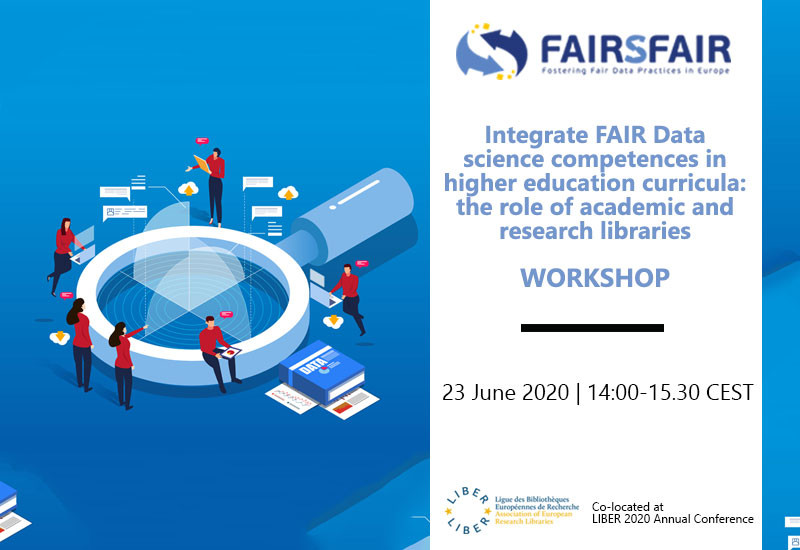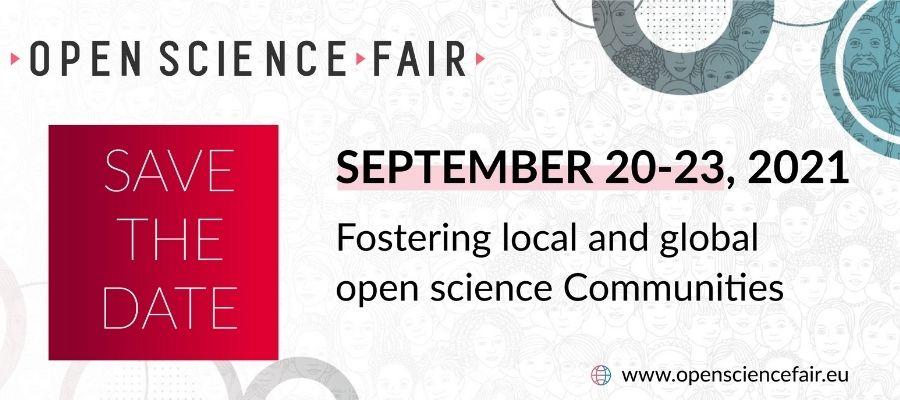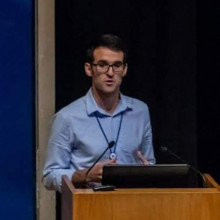In the context of the FAIRsFAIR task “Synergies with FAIR educators” activity, of the Work Package “FAIR Data Science and Professionalisation”, a series of three stakeholders workshops was organised targeting research support staff supporting Open and FAIR science training activities. The workshops were organised with stakeholder organisations developing and offering Open Science and FAIR data education/training and European projects and initiatives active in promoting FAIR to exploit potential synergies with them.
The main goal was to organize workshops within events addressing European or international Research Data Management, FAIR data and Open Science, to share the main results from the Work Package activities and mainly to collect feedback from the participants about distinct topics, such as the role of academic and research libraries on the integration of FAIR data science competencies in higher education curricula; impact and experiences from national policies and support actions for research data skills; and lessons learned from FAIR data implementation, namely good practices from universities across Europe.
Integrating FAIR Data Science Competencies in Higher Education Curricula: the Role of Academic and Research Libraries
 Organised by FAIRsFAIR and LIBER (Liber Digital Skills for Library Staff & Researchers Working Group). Hosted during LIBER 2020 Annual Conference on 23 June 2020 in an online setting.
Organised by FAIRsFAIR and LIBER (Liber Digital Skills for Library Staff & Researchers Working Group). Hosted during LIBER 2020 Annual Conference on 23 June 2020 in an online setting.
At the LIBER 2020 Annual Conference, FAIRsFAIR and the LIBER Digital Skills for Library Staff & Researchers Working Group organised a workshop to discuss the role of academic and research libraries in assimilating the FAIR principles into higher education curricula. Lessons learned from the participants further enriched the findings from the FAIRsFAIR survey into the state of FAIR in this field.
The LIBER Digital Skills working group facilitated a panel of four speakers who presented use cases: Couperin.org, France; École Polytechnique Fédérale de Lausanne, Switzerland; Open Science Platform, Poland; University of Turku, Finland. The presentations and the discussion which followed the panel discussion gave new insights into institutional and national approaches to FAIR data education and training from the perspective of libraries and library personnel.
- Read the workshop blog post: https://www.fairsfair.eu/articles-publications/integrating-fair-data-science-competences-higher-education-curricula-role
- Workshop recording: https://www.youtube.com/watch?v=WyCgY24NN1Y
- Workshop slides and Mentimeter results: http://doi.org/10.5281/zenodo.3929098
- Webpage: https://www.fairsfair.eu/events/integrating-fair-data-science-competencies-higher-education-curricula-role-academic-and#
National policy and support actions for research data skills - impact and experiences

Organised by FAIRsFAIR and OpenAIRE on 28 April 2021 in an online setting. The workshop “National policy and support actions for research data skills - impact and experiences” aimed to discuss the role of national-level initiatives to advance skills development for research data management, and to take stock of the national initiatives and discuss good practices, impact and ways forward for such initiatives.
The workshop brought together representatives from different national platforms, namely from France, Greece and Ireland, projects and organisations active in skills development and policy for RDM and FAIR data, namely Swissuniversities and University of Cologne. Additionally, the report “Digital skills for FAIR and open science” from the EOSC Executive Board Skills and Training Working Group, was also presented.
It was an opportunity to inform and debate how national-level initiatives contribute to awareness and practical solutions for skills development, as well as to discuss the role and responsibility of individual organisations, such as universities, and national initiatives in aligning and expanding education and training for Research Data Management.
The sharing of experiences and knowledge during this workshop was an enriching moment, both for the participants and for the FAIRsFAIR project, namely contributing with relevant inputs to develop the activities within the scope of the Work package “FAIR Data Science and Professionalisation”. Participants were able to further engage with the project activities through a following series of events that took place in the autumn of 2021. Among these will be two universities workshops that presented further results and shared ideas and best practices in integrating FAIR data competences in university teaching, as well as the 3rd and last Stakeholder Meeting.
- Read the workshop blog post: https://www.fairsfair.eu/articles-publications/national-policy-and-support-actions-research-data-skills-impact-and
- Workshop presentations and recordings: https://www.fairsfair.eu/events/national-policy-and-support-actions-research-data-skills-impact-and-experiences-0.
Learning lessons from FAIR data implementation. Good practices from universities across Europe
Organised by FAIRsFAIR’s WP7 partners with contributions from WP3 and WP6. Hosted during the Open Science Fair 2021 on 20 September 2021 in an online setting.
 The workshop “Learning lessons from FAIR data implementation. Good practices from universities across Europe” organised by FAIRsFAIR during the Open Science Fair 2021, offered participants the opportunity to discuss a preliminary analysis of good practices from universities across Europe that are being gathered by the project partners, highlighting the drivers, impact and implementation steps behind initiatives taken by institutions to integrate Research Data Management and FAIR data skills in university curricula.
The workshop “Learning lessons from FAIR data implementation. Good practices from universities across Europe” organised by FAIRsFAIR during the Open Science Fair 2021, offered participants the opportunity to discuss a preliminary analysis of good practices from universities across Europe that are being gathered by the project partners, highlighting the drivers, impact and implementation steps behind initiatives taken by institutions to integrate Research Data Management and FAIR data skills in university curricula.
The breakout room discussions highlighted the key role of higher education institutions in supporting the uptake of FAIR and RDM data skills and contributing to the development of the new generation of data skilled professionals. Funding requirements at the European and national level are major drivers, but universities are the main actors guiding and implementing this transition in practice by promoting training opportunities for their students, researchers and staff. While ensuring the support of the leadership is key, universities’ leaders are still perceived as not being engaged enough with matters related to FAIR data. This, together with the lack of dedicated staff, can hinder the capacity of higher education institutions to implement and sustain dedicated training initiatives and, ultimately, the emergence of good RDM and FAIR data practices. Linking FAIR data needs to other priorities in the institutional agenda is seen as a good strategy to capture the attention of university leaders. Moreover, implementing institutional policies for Open Science and developing new infrastructures are crucial to sustain and enhance the impact of training activities in the long term.
- Read the workshop blog post: https://www.fairsfair.eu/articles-publications/learning-lessons-fair-data-implementation-good-practices-universities-across
- Workshop presentations: https://zenodo.org/record/5547256#.YWk65BpBw2w
- Workshop recordings: https://www.youtube.com/watch?v=j_EclUELwMs&feature=youtu.be
Main findings
The FAIRsFAIR Stakeholders Workshops series was an excellent opportunity to share the FAIRsFAIR efforts to contribute to the implementation of FAIR data good practices, jointly with the speakers who presented and shared their experiences and good practices and the participants who also contributed with enrichful feedback during the breakout sessions.
Along this path, several contributions have been collected, as showcased above, contributing to identify good practices and examples across Europe, namely on the role of the main stakeholders (such as the research library support staff), policies and support, and activities that are supporting the implementation of training initiatives on RDM and FAIR data, as well to implement good practices on the field. The good examples at institutional and national level on implementing FAIR data practices and supporting RDM skills in the European landscape, shows that the culture of FAIR data is already emerging, and may contribute to more higher education institutions following the same path.
Universities will play a key role, contributing to the implementation of good practices across Europe, in supporting the uptake of FAIR and RDM data skills and supporting the development of the new generation of data skilled professionals.
However, universities’ leaders are still perceived as not being engaged enough with matters related to FAIR data. This, together with the lack of dedicated staff, can hinder the capacity of higher education institutions to implement and sustain dedicated training initiatives and, ultimately, the emergence of good RDM and FAIR data practices.
In fact, one of the main challenges in the near future to implement a European FAIR data culture as modus operandi, will be the implementation of RDM and FAIR data skills in Higher Education curricula. It’s expected to be one of the most relevant initiatives, as it will promote the training and acquisition of key skills to a wider audience.
As future recommendations, linking FAIR data needs to other priorities at an institutional and organisational level is seen as a good strategy to capture the attention of university leaders. Moreover, implementing institutional policies for Open Science and developing new infrastructures are crucial to sustain and enhance the impact of training activities in the long term. It’s also key to continue the approach of engaging with key stakeholders to develop the necessary conditions and practical strategies to further develop FAIR data skills and competences at the institutional level.

